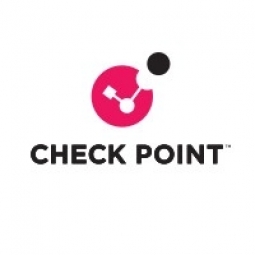Download PDF
ENN Group Enhances Network Security with Check Point's Scalable Solution
Technology Category
- Cybersecurity & Privacy - Application Security
- Cybersecurity & Privacy - Network Security
Applicable Industries
- Electronics
- National Security & Defense
Applicable Functions
- Logistics & Transportation
- Product Research & Development
Use Cases
- Inventory Management
- Tamper Detection
Services
- Cybersecurity Services
The Challenge
ENN Group, a clean energy company based in China, was facing significant challenges with its network security. The rapid growth in Internet traffic had increased the risk of network security breaches, and compromised PCs could easily spread attacks to other systems, causing extensive damage. ENN's outdated firewall lacked an effective blocking policy, and viruses and other attacks were not being effectively detected and blocked before infiltrating the ENN network. There was also concern about the reliance on a single firewall, which could become a single point of failure. If the firewall were to break down, there would be no efficient way to regain secure access to the Internet and VPN. Managing standalone firewalls was time-consuming and prone to error, and analyzing multiple firewall logs was difficult. Additionally, VPN access and performance were inconsistent, and VPN clients could not select the optimum link without manual intervention.
About The Customer
ENN Group, founded in 1989 and headquartered in the Hebei Province of China, is committed to the development and utilization of clean energy. Its mission is based on gas distribution and the exploitation of coal-based clean energy. ENN explores hydrogen energy and bio-energy through the recycling treatment of carbon dioxide (CO2) to establish zero emissions and clean utilization of coal-based energy during its lifespan. ENN Group has formed a complete clean energy industry chain covering energy supply and service, logistics, trading, development, and production. They have developed a high-technology and finance business to drive the rapidly expanding and sustainable ENN enterprise. By the end of September 2008, ENN had set up more than 100 subsidiaries in over 80 cities across China and the world, and employed more than 24,000 people with total assets of USD 4 billion.
The Solution
To address these challenges, ENN Group selected two Check Point UTM-1 Total Security 1050 appliances, which work as a cluster installed at the company headquarters. This solution provides dual standby and load balancing and can expand to an eight-unit cluster, offering the scalability needed for ENN's rapidly growing business. It also increases the availability and redundancy of the network for their two ISP links. Six area centers located in other cities deployed UTM-1 Total Security 450 and 270 appliances, providing comprehensive security protection and VPN access to the business units managed by the area center. SecureClient was used to allow employees out of the office to conveniently and securely access internal ENN resources via firewalls located at headquarters and six area centers. ENN also deployed SmartCenter for centralized management of eight firewalls, as well as Eventia Suite for security auditing and analysis. Check Point also provided ENN with one year of service through its Collaborative Enterprise Support program.
Operational Impact
Quantitative Benefit
Related Case Studies.

Case Study
Remote Temperature Monitoring of Perishable Goods Saves Money
RMONI was facing temperature monitoring challenges in a cold chain business. A cold chain must be established and maintained to ensure goods have been properly refrigerated during every step of the process, making temperature monitoring a critical business function. Manual registration practice can be very costly, labor intensive and prone to mistakes.

Case Study
Cloud Solution for Energy Management Platform-Schneider Electric
Schneider Electric required a cloud solution for its energy management platform to manage high computational operations, which were essential for catering to client requirements. As the business involves storage and analysis of huge amounts of data, the company also needed a convenient and scalable storage solution to facilitate operations efficiently.

Case Study
Leveraging the IoT to Gain a Competitive Edge in International Competition
Many large manufacturers in and outside Japan are competing for larger market share in the same space, expecting a growing demand for projectors in the areas of entertainment, which requires glamor and strong visual performance as well as digital signage that can attract people’s attention. “It is becoming more and more difficult to differentiate ourselves with stand-alone hardware products,” says Kazuyuki Kitagawa, Director of Service & Support at Panasonic AVC Networks. “In order for Panasonic to grow market share and overall business, it is essential for us to develop solutions that deliver significant added value.” Panasonic believes projection failure and quality deterioration should never happen. This is what and has driven them to make their projectors IoT-enabled. More specifically, Panasonic has developed a system that collects data from projectors, visualizes detailed operational statuses, and predicts issues and address them before failure occurs. Their projectors are embedded with a variety of sensors that measure power supply, voltage, video input/ output signals, intake/exhaust air temperatures, cooling fan operations, and light bulb operating time. These sensors have been used to make the projector more intelligent, automatically suspending operation when the temperature rises excessively, and automatically switching light bulbs. Although this was a great first step, Panasonic projectors were still not equipped with any capability to send the data over a network.








